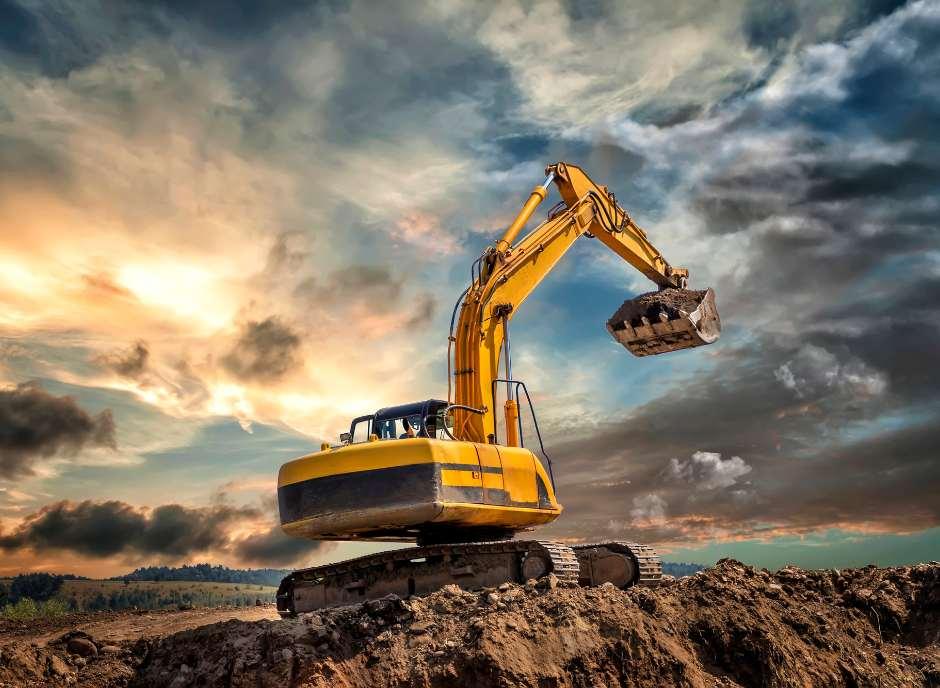In the realm of construction and infrastructure development, heavy equipment—such as excavators, bulldozers, loaders, and graders—plays an important part in helping accomplish the task most efficiently. However, the downside is that owning such expensive equipment can place a significant financial burden on a business, especially a small to medium enterprise (SME). Fortunately, that is where earthmoving equipment finance services address the challenge by providing businesses with a smarter, more flexible, and sustainable solution to access important equipment. From conserving capital to managing cash flow or ensuring growth and operational capacity, many benefits to equipment finance that will better position a business to satisfy customers in a competitive environment.
- Consider Conserving Working Capital: One of the most significant benefits of earthmoving equipment finance is preserving working capital. Financing equipment does not require putting a significant allocation of your company's funds against the purchase of expensive equipment; you are able to spread the cost with manageable monthly payments. As a result, your liquidity remains the same, so you have sufficient cash flow for payroll, materials, maintenance, and other operational expenses. For a growing construction company, this may be the difference between inaction and growth.
- Ease of Access to Modern Equipment: Technology in the construction and earthmoving industries is developing rapidly. Using older equipment can limit productivity and drive up costs. Financing allows firms access to the newest and most innovative earthmoving equipment without paying full ownership costs upfront. Leasing is one of several financing options that allow a firm to install upgraded equipment at the end of a leasing term, while keeping its fleet modern, dependable, and industry-compliant.
- Better Cash Flow Management: Equipment financing enables firms to manage cash flow better by converting large capital expenses into predictable monthly operating expenses. Instead of facing the stressful situations of unexpected large cash outflows, the leasing firm can better plan its budgets and help provide fluidity in its operational expenses. There are lending repayment options to account for the time frame of projects and revenue cycles to help firms sustain cash flows when work seasons vary.
- Tax Benefits and Deductions: Another advantageous aspect of financing or leasing heavy equipment is the tax benefits of ownership or deductible expenses for leased equipment. In many areas of the world, a business can deduct its lease payments or interest expense associated with its account on financed equipment from its taxable income, thus decreasing its tax burden. There may be depreciation benefits if the equipment was purchased in a leasing or financing deal. These financial benefits make earthmoving equipment finance not only an operational strategy but a tax-effective investment too.
- Flexibility in Finance Options: Finance companies today have a plethora of options to cater to different business models and requirements. In many respects, how you finance your new equipment, whether through operating lease, hire purchase, or equipment loan, you can find an arrangement that fits your operational and budget requirements, whether it is a large or small project. For example, an operating lease structure works for companies that regularly upgrade their operating equipment and operate on a "just in time" basis. Companies planning on keeping the equipment for longer periods of time would benefit from hire purchase. This is especially valuable if you are planning for your growth strategy.
- Mitigating Risk and Uncertainty: The construction sector is known for its unpredictability; fluctuating demand, changing commitments, and seasonality abound. The risk management benefits from financing can help companies demystify the financial risks associated with equipment ownership by allowing them to adjust their equipment inventory according to project commitment. Companies are no longer solely encumbered by long-term, depreciating, fixed assets. Companies can lease, rent, or finance their equipment for the project or duration required and return or upgrade the equipment following the contract end. Ideally, this limits an equipment owner's exposure to equipment ownership risk and strives to keep a company's balance sheet in a stable condition.
- Benefits of the Maintenance and Support: Many equipment finance services will tie in some maintenance and support agreements with their financing and lease contracts. This allows your equipment to stay in good working order during the lease term without unexpected repair costs. Reliable and well-maintained equipment promotes job site efficiency and reduces potential downtime, which is crucial to ensuring on-time job completion and client satisfaction.
- Supporting Business Growth and Expansion: Access to flexible financing is critical to construction companies taking on larger projects and scaling up operations to manage bigger projects. Companies aren’t limited by having enough cash to purchase additional equipment; they can find financing to acquire more equipment when project needs increase. This scalability means financing for equipment becomes valuable to businesses seeking growth without having any cash implications.
- Managing Equipment Depreciation: Owning heavy equipment creates the inevitable challenge of depreciation. The value of equipment begins to drop the minute it is purchased, and depreciation may not only impact resale value, but is also an important factor in your overall financial position. Using options, such as leasing or short-term financing, shifts this burden from your balance sheet, allowing the company to utilize the equipment efficiently without concern for the declining value in the marketplace.
- Enhancing Competitive Advantage: Lastly, earthmoving equipment financing increases a company’s competitive advantage by ensuring it has consistent access to efficient, new, and reliable equipment. With equipment that is able to mitigate downtime by performing better and faster, a construction project is completed more efficiently, resulting in increased satisfaction for your clients and potentially increasing future contracts. This competitive advantage allows businesses to separate themselves in an industry that is always increasing in competition.
Final Thoughts:
The construction and earthmoving industries are reliant on the reliability, performance, and availability of heavy machinery. The high costs of buying new equipment can inhibit the potential of a business. Using earthmoving equipment finance services gives companies the ability to remain fluid financially, receive the best technology, and achieve growth without depleting financial resources. Operational capital, improved cash flow, and reduced risk, benefiting increased productivity, are all reasons equipment financing is a smart financial solution in an ever-evolving and fast-paced space in the construction sector.

